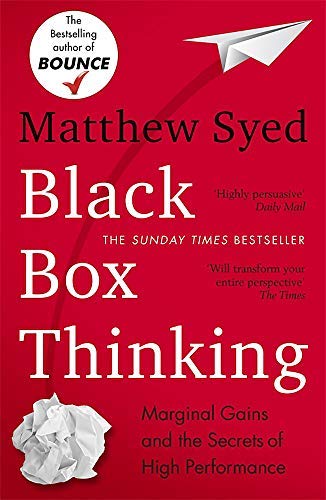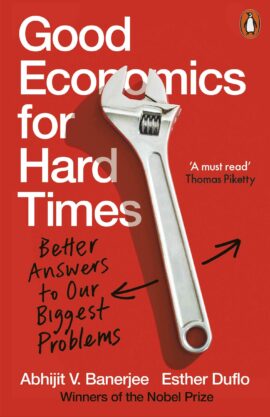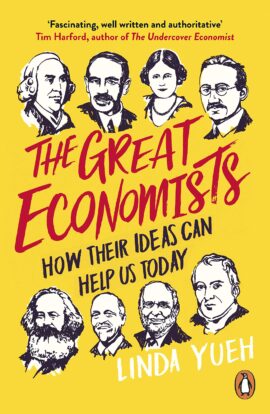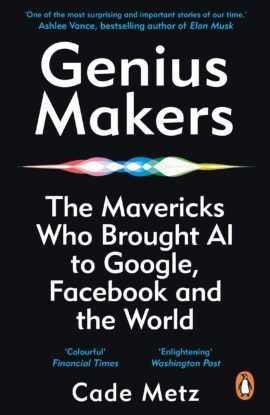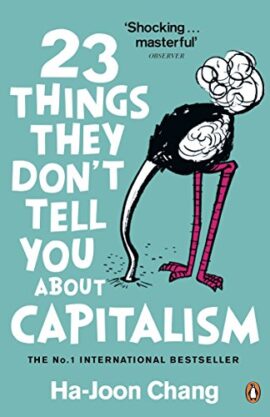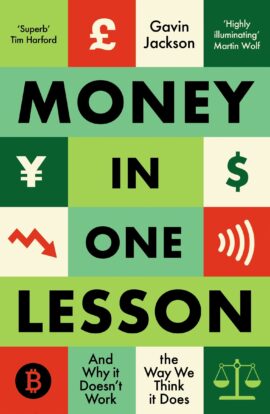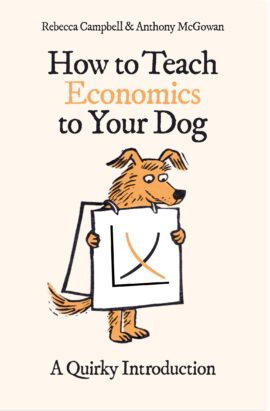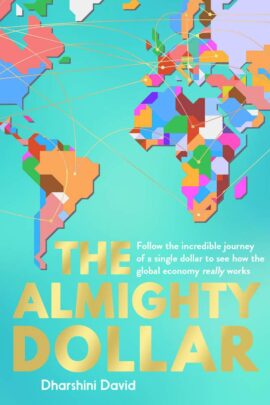«همسات وصرخات – محمد الأخضر السائحي» a été ajouté à votre panier. Voir le panier
Black Box Thinking
2.530,00 د.ج
Please Read Notes: Brand New, International Softcover Edition, Printed in black and white pages, minor self wear on the cover or pages, Sale restriction may be printed on the book, but Book name, contents, and author are exactly same as Hardcover Edition. Fast delivery through DHL/FedEx express.
9
Items sold in last 3 days
Ajouter 6.150,00 د.ج et bénéficier d'une livraison gratuite !
1
People watching this product now!
Estimated delivery dates: avril 22, 2025 – avril 29, 2025
Description
Please Read Notes: Brand New, International Softcover Edition, Printed in black and white pages, minor self wear on the cover or pages, Sale restriction may be printed on the book, but Book name, contents, and author are exactly same as Hardcover Edition. Fast delivery through DHL/FedEx express.
Informations complémentaires
| Editeur |
|---|
Produits similaires
Good Economics for Hard Times: Better Answers to Our Biggest Problems
2.530,00 د.ج
FROM THE WINNERS OF THE 2019 NOBEL PRIZE IN ECONOMICS'Wonderfully refreshing . . . A must read' Thomas PikettyIn this revolutionary book, prize-winning economists Abhijit V. Banerjee and Esther Duflo show how economics, when done right, can help us solve the thorniest social and political problems of our day. From immigration to inequality, slowing growth to accelerating climate change, we have the resources to address the challenges we face but we are so often blinded by ideology.Original, provocative and urgent, Good Economics for Hard Times offers the new thinking that we need. It builds on cutting-edge research in economics - and years of exploring the most effective solutions to alleviate extreme poverty - to make a persuasive case for an intelligent interventionism and a society built on compassion and respect. A much-needed antidote to polarized discourse, this book shines a light to help us appreciate and understand our precariously balanced world.
Great Economists
2.530,00 د.ج
A Times Best Business Book of 2018What can the ideas of history's greatest economists tell us about the most important issues of our time?'The best place to start to learn about the very greatest economists of all time' Professor Tyler Cowen, author of The Complacent Class and The Great StagnationSince the days of Adam Smith, economists have grappled with a series of familiar problems - but often their ideas are hard to digest, before we even try to apply them to today's issues. Linda Yueh is renowned for her combination of erudition, as an accomplished economist herself, and accessibility, as a leading writer and broadcaster in this field: and in The Great Economists she explains the key thoughts of history's greatest economists, how their lives and times affected their ideas, how our lives have been influenced by their work, and how they could help with the policy challenges that we face today.In the light of current economic problems, and in particular economic growth, Yueh explores the thoughts of economists from Adam Smith and David Ricardo through Joan Robinson and Milton Friedman to Douglass North and Robert Solow. Along the way she asks, for example: what do the ideas of Karl Marx tell us about the likely future for the Chinese economy? How does the work of John Maynard Keynes, who argued for government spending to create full employment, help us think about state investment? And with globalization in trouble, what can we learn about handling Brexit and Trumpism?In one accessible volume, this expert new voice provides an overarching guide to the biggest questions of our time.The Great Economists includes:Adam SmithDavid RicardoKarl MarxAlfred MarshallIrving FisherJohn Maynard KeynesJoseph SchumpeterFriedrich HayekJoan RobinsonMilton FriedmanDouglass NorthRobert Solow'Economics students, like others, can learn a lot from this book' - Professor Paul Collier, author of The Bottom Billion'Not only a great way to learn in an easily readable manner about some of the greatest economic influences of the past, but also a good way to test your own a priori assumptions about some of the big challenges of our time.' - Lord Jim O'Neill, former Chairman at Goldman Sachs Asset Management, former UK Treasury Minister, and author of The Growth Map'An extremely engaging survey of the lifetimes and ideas of the great thinkers of economic history.' - Professor Kenneth Rogoff, author of The Curse of Cash and co-author of This Time is Different'This book is a very readable introduction to the lives and thinking of the greats.' - Professor Raghuram Rajan, former Governor of the Reserve Bank of India, and author of I Do What I Do and Fault Lines'Read it not only to learn about the world's great economists, but also to see how consequential thought innovations can be, and have been.' - Mohamed el-Erian, Chief Economic Adviser at Allianz, former CEO of PIMCO
Genius Makers: The Mavericks Who Brought A.I. to Google, Facebook, and the World
2.530,00 د.ج
This colourful page-turner puts artificial intelligence into a human perspective . . . Metz explains this transformative technology and makes the quest thrilling.' Walter Isaacson, author of Steve Jobs____________________________________________________This is the inside story of a small group of mavericks, eccentrics and geniuses who turned Artificial Intelligence from a fringe enthusiasm into a transformative technology. It's the story of how that technology became big business, creating vast fortunes and sparking intense rivalries. And it's the story of breakneck advances that will shape our lives for many decades to come - both for good and for ill.________________________________________________'One day soon, when computers are safely driving our roads and speaking to us in complete sentences, we'll look back at Cade Metz's elegant, sweeping Genius Makers as their birth story - the Genesis for an age of sentient machines.' Brad Stone, author of The Everything Store and The Upstarts'A ringside seat at what may turn out to be the pivotal episode in human history . . . easy and fun to read . . . undeniably charming.' Forbes
23 Things They Don’t Tell You about Capitalism
2.530,00 د.ج
Ha-Joon Chang's 23 Things They Don't Tell You About Capitalism turns received economic wisdom on its head to show you how the world really works.In this revelatory book, Ha-Joon Chang destroys the biggest myths of our times and shows us an alternative view of the world, including:There's no such thing as a 'free' marketGlobalization isn't making the world richerWe don't live in a digital world - the washing machine has changed lives more than the internetPoor countries are more entrepreneurial than rich onesHigher paid managers don't produce better resultsWe don't have to accept things as they are any longer. Ha-Joon Chang is here to show us there's a better way.'Lively, accessible and provocative ... read this book'Sunday Times'A witty and timely debunking of some of the biggest myths surrounding the global economy'Observer'The new kid on the economics block ... Chang's iconoclastic attitude has won him fans'Independent on Sunday'Lucid ... audacious ... increasingly influential ... will provoke physical symptoms of revulsion if you are in any way involved in high finance'Guardian'Important ... persuasive ... an engaging case for a more caring era of globalization'Financial Times'A must-read ... incisive and entertaining'New Statesman Books of the YearHa-Joon Chang is a Reader in the Political Economy of Development at the University of Cambridge. He is author of Kicking Away the Ladder: Development Strategy in Historical Perspective, which won the 2003 Gunnar Myrdal Prize, and Bad Samaritans: Rich Nations, Poor Policies and the Threat to the Developing World. Since the beginning of the 2008 economic crisis, he has been a regular contributor to the Guardian, and a vocal critic of the failures of our economic system.
Good Economics for Hard Times: Better Answers to Our Biggest Problems
2.530,00 د.ج
FROM THE WINNERS OF THE 2019 NOBEL PRIZE IN ECONOMICS'Wonderfully refreshing . . . A must read' Thomas PikettyIn this revolutionary book, prize-winning economists Abhijit V. Banerjee and Esther Duflo show how economics, when done right, can help us solve the thorniest social and political problems of our day. From immigration to inequality, slowing growth to accelerating climate change, we have the resources to address the challenges we face but we are so often blinded by ideology.Original, provocative and urgent, Good Economics for Hard Times offers the new thinking that we need. It builds on cutting-edge research in economics - and years of exploring the most effective solutions to alleviate extreme poverty - to make a persuasive case for an intelligent interventionism and a society built on compassion and respect. A much-needed antidote to polarized discourse, this book shines a light to help us appreciate and understand our precariously balanced world.
Money in One Lesson
2.530,00 د.ج
Superb' - Tim Harford, author of How to Make the World Add UpMoney is essential to the economy and how we live our lives, yet is inherently worthless. We can use it to build a home or send us to space, and it can lead to the rise and fall of empires. Few innovations have had such a huge impact on the development of humanity, but money is a shared fiction: a story we believe in so long as others act as if it is true.Money is rarely out of the headlines – from the invention of cryptocurrencies to the problem of high inflation, extraordinary interventions by central banks and the power the West has over the worldwide banking system. In Money in One Lesson, Gavin Jackson answers the most important questions on what money is and how it shapes our world, drawing on vivid examples from throughout history to demystify and show how societies and its citizens, both past and present, are always entwined with matters of money.‘A highly illuminating, well-researched and beautifully written book on one of humanity’s most important innovations’ – Martin Wolf, chief economics commentator, Financial Times
How to Teach Economics to Your Dog: A Quirky Introduction
2.300,00 د.ج
A fun take on some of the biggest questions in economics, made accessible for non-experts (and dogs)Monty is a dog, not a financial genius, but economics still shapes his everyday life.Over the course of seventeen walks, Dr Rebecca Campbell chews over economic concepts and investigates how they apply to our lives – people and mutts alike. There are no graphs, no charts (Monty can’t read them) and definitely no calculus!How to Teach Economics to Your Dog tackles the knotty question of what economics actually is. Is it a mathematical science like physics? Or a moral and philosophical investigation of how societies should manage scarce resources?Along the way we meet some of the great thinkers from Adam Smith to Thomas Piketty, and ponder questions such as: What on earth does quantitative easing mean? And why are some countries so much richer than others?
The Almighty Dollar: Follow the Incredible Journey of Single Dollar to See How the Global Economy Really Works
2.530,00 د.ج
Have you ever wondered why we can afford to buy far more clothes than our grandparents ever could ... but may be less likely to own a home in which to keep them all? Why your petrol bill can double in a matter of months, but it never falls as fast? Behind all of this lies economics. It's not always easy to grasp the complex forces that are shaping our lives. But by following a dollar on its journey around the globe, we can start to piece it all together. The dollar is the lifeblood of globalisation. Greenbacks, singles, bucks or dead presidents: call them what you will, they are keeping the global economy going. Half of the notes in circulation are actually outside of the USA - and many of the world's dollars are owned by China. But what is really happening as our cash moves around the world every day, and how does it affect our lives? By following $1 from a shopping trip in suburban Texas, via China's central bank, Nigerian railroads, the oilfields of Iraq and beyond, The Almighty Dollar reveals the economic truths behind what we see on the news every day. Why is China the world's biggest manufacturer - and the USA its biggest customer? Is free trade really a good thing? Why would a nation build a bridge on the other side of the planet? In this illuminating read, economist Dharshini David lays bare these complex relationships to get to the heart of how our new globalised world works, showing who really holds the power, and what that means for us all.

